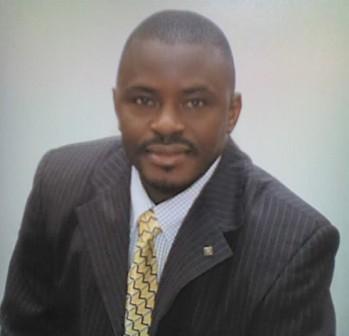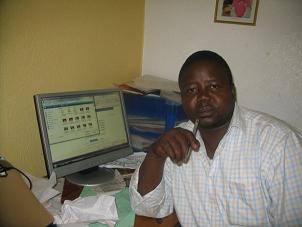After independence, what next for South Sudan?
With a roaring cheer the people of South Sudan welcomed the newest nation in the world on July 9. Couples embraced and men cried as the new national anthem was sung for the first time and the south’s flag hoisted, marking the formal independence from former civil war enemies in the north.
“Today is the most important day for the people of South Sudan,” said President Salva Kiir, in front of a giant crowd. “It is a day which will be forever engraved on our hearts and minds.… We have waited 56 years for this day.”
But the hard work begins. “Let us celebrate today, but we must get to work right away,” President Kiir added. The new nation, an area about the size of Spain and Portugal combined, is ruined by decades of war.
“We have suffered over many years of fighting,” said former child soldier turned student Mabior David. “Our baby nation has a long way to go,” he added. “But if we can be left in peace, I’m hopeful we will manage.”
Sudan’s wars were the longest running conflict in Africa: two rounds of civil war spanning nearly 40 years, fought over ideology, religion, ethnicity, resources, land and oil. The last round, from 1983 to 2005, left some 2 million people dead and 4 million displaced.
Some in the south fought for separation. Others wanted a united Sudan, aiming to change a ruling regime in Khartoum that they said marginalized the majority. But the rebels also fought amongst themselves; in internecine battles as bloody as those fought against government forces.
A referendum on independence was part of a 2005 peace deal. This January, almost 99 per cent of southerners voted to split Africa’s largest country into two.
“There are enormous expectations, but also enormous challenges ahead,” said Joe Feeney, who heads the UN Development Programme in South Sudan. “[The war] left a scar that is not only physical, but a scar has been left on the people.”
Six nations share a border with this often lawless wilderness, which has fewer than 100 kilometres of tarmac roads. “The vast majority of the country remains inaccessible during the rainy season,” added Mr. Feeney. “Jonglei state, just one of the ten states in the south, is twice the size of my country, Ireland, and it has no paved roads.”
South Sudan has lucrative oil reserves, but remains one of the most impoverished regions in the world. The UN’s World Food Programme helped feed about half the population last year, or some 4 million people.
The UN issued “scary statistics” for visiting journalists: Southern Sudan has the lowest routine immunization coverage rate in the world. A 15-year-old girl has a higher chance of dying in childbirth than completing school. One in seven pregnant women will probably die from pregnancy-related causes.
Away from the independence celebrations, people had little time to party. Their lives are taken up with day-to-day survival. “The acid test of success will be what changes the people will see in their lives,” Mr. Feeney said.
“All of Sudan, not just the south, will face major challenges,” warns Oxfam, the UK-based aid agency. “It will need long-term support from the international community if there is to be lasting peace and development.”
Football and basketball teams have been organized, passports ordered, a national anthem written. “Having our team play under the South Sudanese flag is something we have waited for,” says Rudolf Andrea, secretary of the South Sudan Football Association.
Key to success will be how the government negotiates with those who still threaten the country. Traditional ethnic rivalries between multiple groups are exacerbated by bitter enmities from the war.
Most of the south pulled together to oppose forces from the north. But now, the south must find a common bond and create a nation based on a shared identity.
Jok Madut Jok, a South Sudanese academic working in the culture ministry, and also a history professor at Loyola Marymount University in the US state of California. Questions whether the new nations is “going to exercise the double standard that other countries have gone in for — that you become independent and then go ahead and do the exact things that you had rebelled against?”
Over 2 million southerners have returned home since the signing of the 2005 peace agreement. Over 300,000 have returned since last October. “We have returned because we had to leave the north, our jobs were terminated,” said former civil service official Giir Thiik, who spent four weeks on a slow barge to Juba.
Building an economy to construct the new nation and provide jobs will put pressure on the government. About 98 per cent of government budget comes from oil revenues. The south is also believed to hold large mineral and metal deposits. It has vast areas of farmland, forestry and even hydroelectric power from the White Nile River.
The final steps towards Sudan’s divorce have been tough. Key deals remain to be struck: sharing the oil proceeds, dividing the US$35 billion debt and demarcating the borders. Both countries have announced they are introducing new currencies, a process likely to complicate their struggling economies.
Despite a peaceful referendum, tensions remain high with the north. In May, northern troops took over the contested Abyei region, forcing over 110,000 people to flee into the south.
There is a deal for northern troops to pull out and Ethiopian peacekeepers to replace them. But that deal does not provide any long-term peaceful solution.
In June violence broke out in the northern oil state of Southern Kordofan, between the northern military and former members of the ex-rebel Sudan People’s Liberation Army, now the official southern army. The north claims the fighters are backed by the south, just as the south accuses the north of backing rebels in its territory to destabilize key oil areas along the still undefined north-south border.
Each side rejects the other’s accusations. But analysts fear there will be no swift solution to conflict along the border.
By Peter Martell, Africa Renewal www.un.org/africarenewal
SEM in collaboration with Africa Renewal
Stay with Sierra Express Media, for your trusted place in news!
© 2011, https:. All rights reserved.






